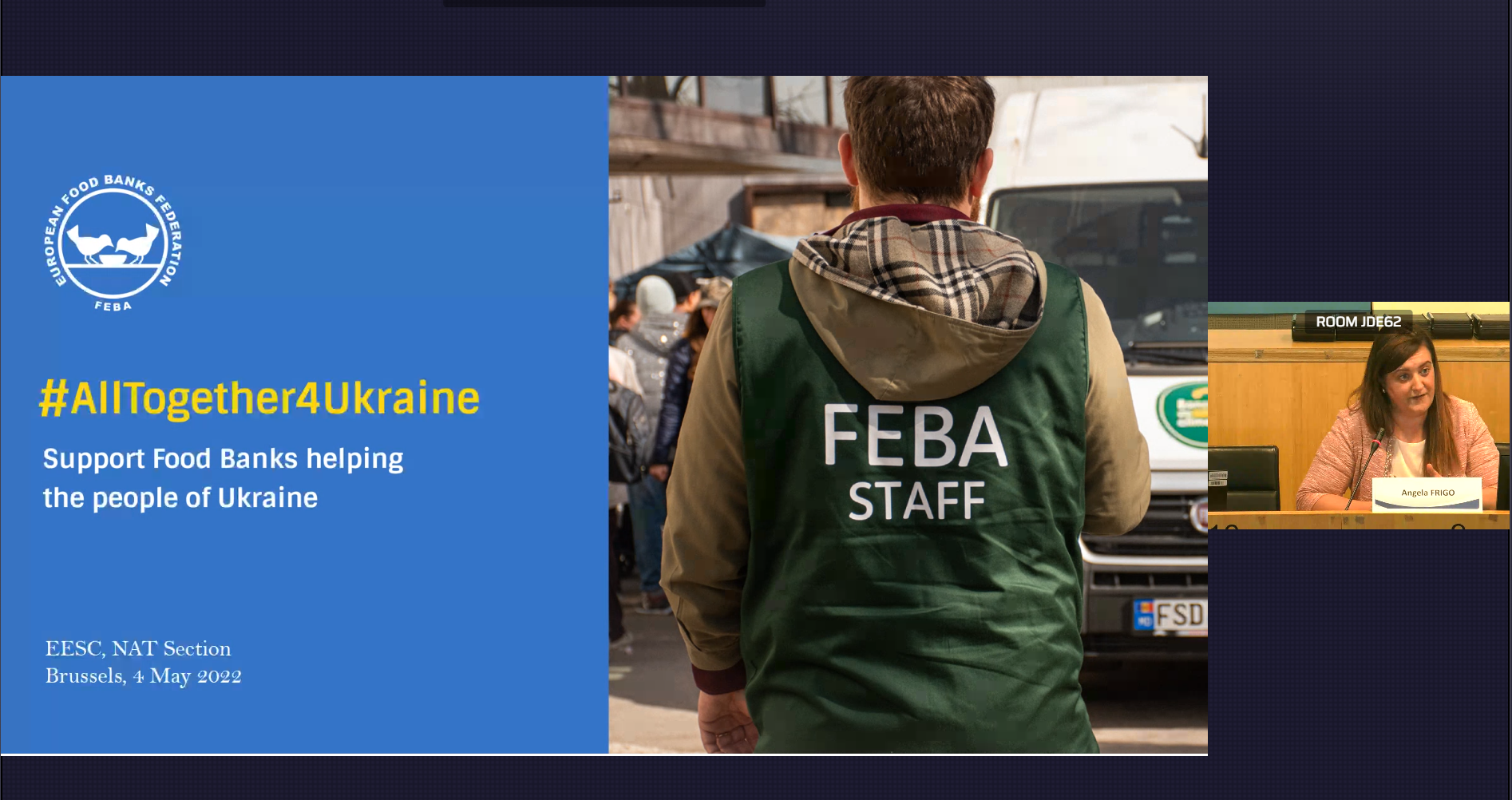On the 4 May FEBA Secretary General Angela Frigo was invited to the meeting of the NAT Section of the European Economic and Social Committee (EESC) to give insights into the work of FEBA and its members with regards to the Ukraine crisis and the food insecurity resulting from that.
The session was opened by Peter Schmidt, President of the NAT section of the EESC. He started the session by highlighting how the two ongoing crises, the COVID-19 pandemic and the war in Ukraine, will have long-lasting and direct effects on all of us. He then praised the relevant activity carried out by the European Food Banks while he reminded that also governments should play a key role in achieving the SDG 2 Zero Hunger.
President Schmidt then gave the floor to Angela Frigo, who gave a short presentation on FEBA’s work and connecting it to the current crisis in Ukraine. First of all, it is important to mention that FEBA and its members are not emergency organisations and therefore follow daily “normal activities” while at the same time offering crisis management and relief both in times of COVID-19 and the crisis in Ukraine. She then presented the timeline of actions and measures taken by FEBA and its members in the framework of the war in Ukraine. Important here was the launch of the campaign #Alltogether4Ukraine on 1 March 2022. In addition to that Banca de Alimente in Moldova and Federația Băncilor pentru Alimente din România (FBAR) in Romania received the status of Associate Member and joined the FEBA network. At the beginning of April FEBA then visited its members in Moldova, Poland, Romania, and Ukraine. She emphasized the solidarity amongst members of the FEBA network, showing a map of donations from Western Food Banks to the Eastern Food Banks, but also reiterated the support received so far from many companies and citizens. She explained the challenges of the campaign on the one hand the logistics and transports and on the other hand tracking the donations. For the latter however an IT system has been developed to track and monitor donations from the donor to the recipient. For the aspect of logistics, two different hubs have been created thanks to the collaboration of the FBAR in Bucharest and the Federacja Polskich Banków Żywności in Kielce: from these warehouses the food is then redistributed over the border. Rounding off the presentation Angela Frigo presented some remarks from the representative of the Kyiv City Charity Foundation “Food Bank” (KCCF), FEBA Member in Ukraine, who explained that even if the war would end today there would be long-lasting effects and recovery periods for many years to come. However, she also shared some positive news, that people slowly return to Ukraine and that the production in some manufacturing companies could be restarted.
In the end, Angela Frigo pointed out that EU commitment is visible and urged Member States to involve and dialogue with civil society organisations at national level to take measure cushioning the negative effects of the crisis in Ukraine on vulnerable groups and use measures such as the Cohesion’s Action for Refugees in Europe (CARE) in order to tackle the effects of this crisis. But she also urged everyone to not forget about the people in need in Europe and that there is not only a crisis when it comes to food availability but also food affordability as mentioned in the Communication Safeguarding food security and reinforcing the resilience of food systems.
The floor was then opened for discussion and comments, including the opportunity of a closer cooperation between the EESC and FEBA.




